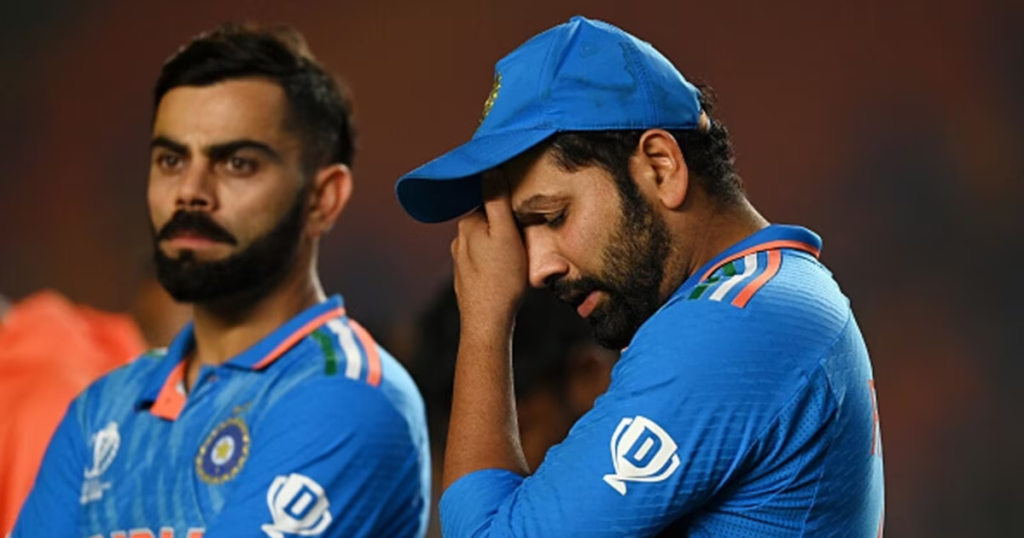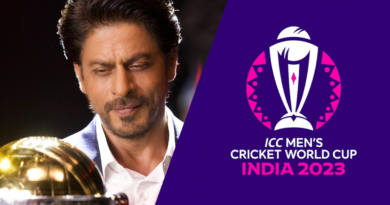The Evolving Landscape Of Indian Cricket Post ICC ODI World Cup 2023 Final
The recently concluded ICC ODI World Cup 2023 Final between India and Australia left cricket enthusiasts on the edge of their seats, witnessing a nail-biting clash that ultimately ended in disappointment for the Indian cricket team. As the dust settles, questions arise about the team’s future trajectory, including whether Rohit Sharma should step down as the white-ball captain, the evolving role of Virat Kohli, who among KL Rahul, Shreyas Iyer, or Shubman Gill could potentially shape the team’s leadership, and if Rahul Dravid needs to be replaced as the Head Coach.
Should Rohit Sharma Step Down as White-Ball Captain?
Rohit Sharma took over the reins as the white-ball captain with the aim of bringing fresh ideas and a new perspective to the team. However, the World Cup loss raises questions about the leadership strategy. While it’s essential not to make hasty decisions in the aftermath of a defeat, a thorough evaluation of Rohit Sharma’s captaincy is warranted.
Crucial aspects to consider include tactical decisions, man-management skills, and the ability to inspire the team in high-pressure situations. If the team management feels a change is needed to rejuvenate the squad, discussions about Rohit Sharma stepping down might be on the table. On the other hand, continuity could be deemed essential for stability and growth, allowing Rohit to learn from the experience and lead the team with renewed vigor.
The Future of Virat Kohli:
Virat Kohli, the linchpin of the Indian batting order, stepped down from white-ball captaincy duties in 2021. However, his role as a senior player remains crucial. At 34, Kohli may choose to reassess his future in international cricket, especially in the shorter formats. A strategic transition plan, if executed thoughtfully, could pave the way for Kohli to focus on his batting and contribute as a mentor to the emerging talents.
Potential Candidates for Captaincy:
If Rohit Sharma decides to step down, identifying a suitable successor becomes paramount. Among the frontrunners are Hardik Pandya, KL Rahul, Shreyas Iyer, Suryakumar Yadav, and Shubman Gill, each bringing their own strengths and attributes to the table.
- Hardik Pandya
Known for his explosive batting and ability to contribute with both bat and ball, Hardik Pandya has been a key player in the Indian team. While his captaincy experience is limited, his aggressive style of play and familiarity with the demands of modern limited-overs cricket make him an intriguing option. If the team management is inclined towards a dynamic leader who leads by example on the field, Pandya could emerge as a dark horse for the captaincy role. - KL Rahul:
A stylish batsman and a proven leader in the Indian Premier League (IPL), KL Rahul has showcased his ability to handle pressure situations. His calm demeanor, combined with a natural flair for captaincy, makes him a strong contender. - Shreyas Iyer:
Shreyas Iyer has been a consistent performer in the middle order and has captained Delhi Capitals and Kolkata Knight Riders in the IPL. His aggressive yet composed approach on the field, along with astute tactical acumen, positions him as a potential leader. - Suryakumar Yadav:
Suryakumar Yadav has made a strong impression with his consistent performances in the middle order. His adaptability to different situations and fearless approach make him a potential leader. Yadav’s leadership skills have been honed through his experiences in domestic cricket and the Indian Premier League (IPL). Choosing Yadav as captain could inject fresh energy and a proactive mindset into the team. - Shubman Gill:
While relatively new to the international scene, Shubman Gill’s elegant batting style and cricketing acumen make him an exciting prospect. Captaincy might be a significant responsibility for a young player, but Gill’s maturity and adaptability could make him a dark horse for the role.
Should Rahul Dravid Remain as the Coach?
Amidst discussions about the leadership on the field, the role of the head coach is equally crucial in shaping the future of Indian cricket. Rahul Dravid, a legendary figure in Indian cricket, currently serves as the head coach. His tenure has been marked by a focus on nurturing young talents and instilling a strong team culture. The question arises: should Rahul Dravid continue in this role?
Dravid’s emphasis on skill development and fostering a healthy team environment has received praise, and his influence is particularly evident in the development of the bench strength. However, a comprehensive evaluation should consider various factors, including the team’s performance, communication with players, and adaptability to changing dynamics.
The aftermath of a World Cup final loss is undoubtedly a challenging period for the Indian cricket team. However, it also presents an opportunity for introspection, strategic planning, and the identification of a pathway forward. Decisions regarding the captaincy, player roles, and coach should be made with a long-term perspective, aiming to build a team that can compete at the highest level for years to come. The blend of experience and youth, combined with astute leadership, will be crucial in shaping the next chapter of Indian cricket.




